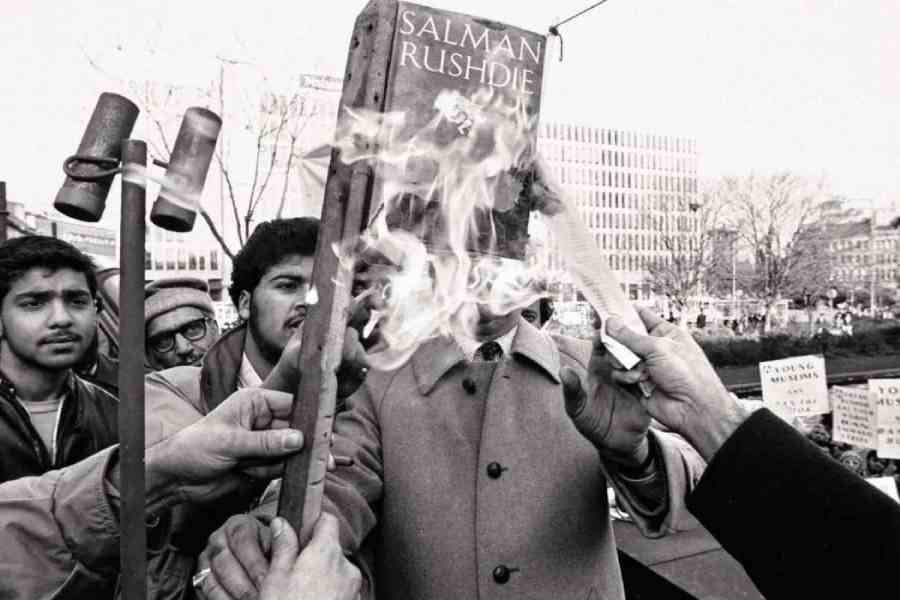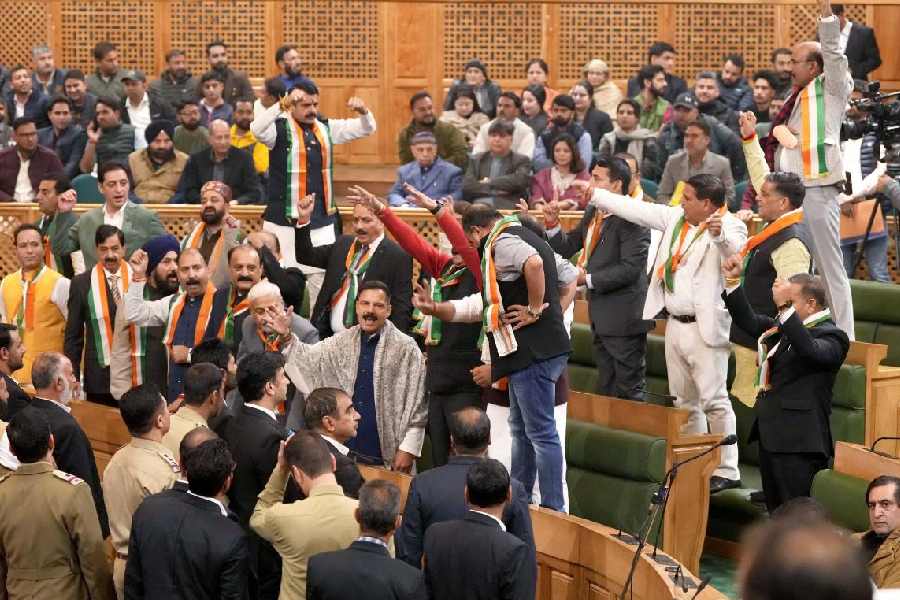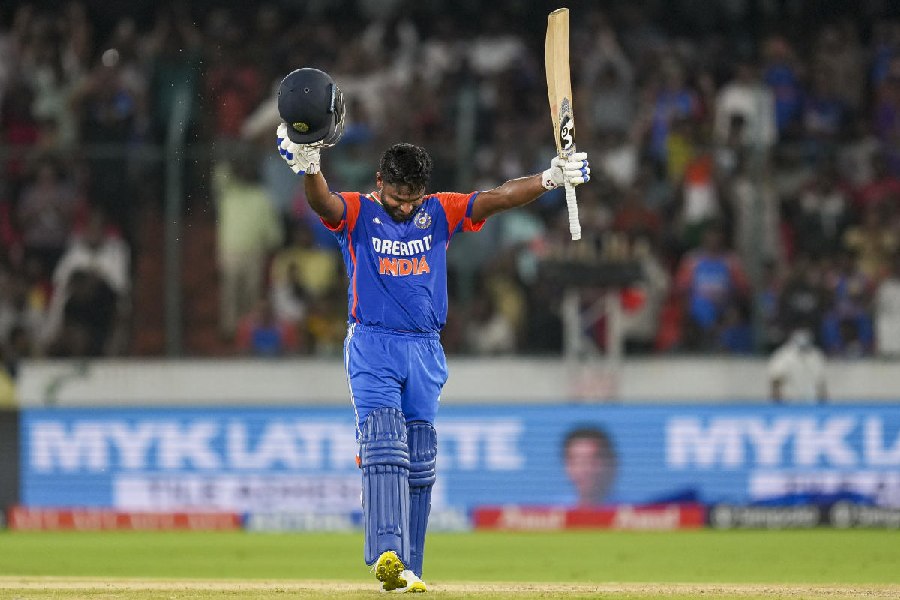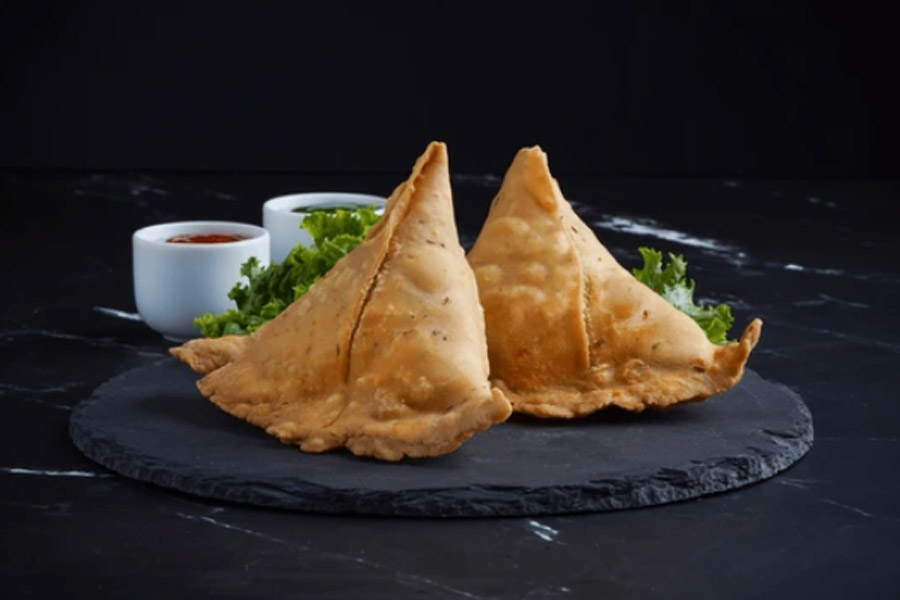Five Calcuttans are re-imagining songs of the past to make evergreen tunes of them today so that these live through the future. In between, they take you places.
Sant Kabir’s India, rural Bengal of course; to neighbouring Bangladesh; then off to West Africa and the Middle East with several detours of the vast soundscapes of rock and reggae. This is no unhinged jam band asking you to dig in with pints of beer and smoke, so that you can get lost in the myriad sounds of the drums conga, bass and screeching guitar. Ziba demands listening. And if you do, you’ll start to feel them in your veins; and who knows, you may even do a quiet little jig while soaking in ice crystals of harmonies, rhythm and lyrics that prompt you to think.
Ziba, Persian for strength, unity and beauty, is helmed by guitar virtuoso Amyt Datta, who claims to have “craftily” zeroed in on the band. Arko Mukhaerjee, who boasts a husky tenor of incredible range, Ritoban “Ludo” Das on drums, Deboprotim “Tukai” Bakshi on congas and percussion and Aakash Ganguly on bass.
“I wanted to reach out to a more general audience but without losing any of the intellect and integrity of the music that I practise,” Amyt tells me, alluding to his many guitar projects that are best described as a showcase of modern jazz with shades of the Mediterranean.
“Slowly, I developed an image of this band as an Afro-dance band that is very festival oriented. Yet, the music we play is deep and if a listener wants to feel that, then he/she’s got to pay the dues,” he insists as the others in the band nod their approval.
We are at the King’s Pub of Dalhousie Institute. Next door, a group of youngsters are practising Zumba to something pretty loud. Also, music. But I go back to Ud Jayega, a song that Ziba released as their first video. With an infectious guitar hook, ably cushioned on a dexterously controlled rhythmic backdrop of bass and percussion, it leads you on to a range of emotions and thought. Who do you bow to when you have done your bidding, asks Arko like Sant Kabir, his voice soaring above the arrangements, projecting and internalising, coaxing and cajoling, in a manner that is a clear standout in the Ziba ouvre.
“Luckily, he’s the man designing the sound of the band,” says Arko, pointing to Amyt. “I just sing a song to him, one that I know. But, then, it could turn complicated and difficult as has happened several times. So, when the arrangement comes after a day or so, I find I can’t get into the song even though I have sung this song for so many years. S**t man!” explains Arko while dismissing suggestions that training in Indian classical is why he’s able to fly off into the wide and unpredictable yonder of improvised singing.
Amyt loves to take a song and make it his own. “Re-arranging songs is a big thing for me. Also, there is another layer to the line-up. I am the only melody instrument. He (Deboprotim) is playing percussion, but he is also like a rhythm back-up. He is like the rhythm guitar player between guitar and the drums and the bass player.”
Deboprotim admits he was a bit lost when he was given this task. “My brief was to be the rhythm player of the band. Now, what is that?” he deadpans as others burst out laughing, indicating that amid all this mentoring they usually have a lot of fun. “But over time, and after regular rehearsals, I have some idea of what exactly he wants. So, it’s not about merely playing a pattern, but a bit more… something that allows him (Amyt) to build on as a soloist.”
It’s a lot of hard work, they all admit, describing their experience as a privilege as well as a welcome challenge. “I grew up listening to this kind of music, say Afro-Cuban music. So, it’s not that difficult,” says Aakash, “primarily because of Amytda and his vast knowledge of music. When I am a little lost, he’s always there to help me with new ideas. But it is very collective.”
Ritoban talks of creative framework. “Generally, we bounce off each other’s energies, each stepping in after the other has pitched in. But all this inside a structure.”
The Ziba way is to marry a song of today with another from a different era or place. Hence, Bob Marley’s I Shot the Sheriff takes off from Manush ekta koler gari, a baul song written by Shivananda. Or a Malian Wassoulou song segues into a Santhali Manbhumi folk tune. Why, at one of their first concerts at Phoenix, Ray’s Dekho rey from Goopy Gyne Bagha Byne got a makeover like one’s never heard before. As does the Doors Roadhouse Blues, where suddenly an innocuous question is slipped in. “Would you like a cup of tea?” followed by a newscaster’s monotonic refrain, “Four persons were killed in Bhangor tonight,” referencing the death of two persons in police firing in that hamlet in Bengal’s South 24-Parganas district on the fringes of the city over the construction of a power grid sub-station.
“You’ve got to have the eyes to see it,” Amyt explains this marriage of tunes. “It’s like this: look at the ceiling,” he says, pointing to the rafters painted in dark tan at the quaint pub. “Tilt your head and focus at a particular angle and you see a man’s head and, may be, a peacock’s tail.” Yet, Ziba is cautious enough to ensure this juxtaposition doesn’t become a caricature and is respectful towards the material at hand.
Together for about a year, the band is 10-12 gigs young, now yearning to hit the festival circuit. “It’s important that this band plays a lot,” affirms Arko. Band leader Amyt feels Ziba talks about life and beyond. “We are constantly searching, looking inwards. We are looking at us.”
At a recent gig at Bangalore’s National Centre for Biological Sciences, validation came from the audience of cutting-edge research fellows and professors. Ziba was doing their stuff when a Romanian woman came rushing in, ecstatic they were playing a tune from her homeland. Imagine: Baul, Fulani, Wassoulou, Santhali, Sufi, Gypsy. Songs from the world. All from a practice pad at home. Calcutta.











